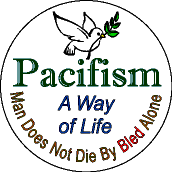What’s too like
To be
Human beans
In a chili world
Offering ourselves
As nourishing fare
In the face of
Ingrate full consumers
Somehow besting
Our pre-sumptuous purpose
Of going to seed
And razing our own
Only to be
Food agin and agin
As brood over
What incite us
And what has meaning
At the end of your daze
Is the same
What’s eating you
Those unpleasant spitting images
This poem is an ode to one of the deepest paradoxes in life: that you must lose your life in order to gain it.  Such a paradox is replete with metaphors of seeds, death and resurrection, of sacrificing that of great value for that of greater value. Plus, in life there is no dress rehearsal: we won’t be food again! Of course, that perplexing aspect of human life which is infinitely complicated is humans: ungrateful, self-centered, and irreducibly exasperating. In my view, the best way to see more clearly in the fun-house mirror that is human life is to cultivate self-awareness of psychological projection, the powerful and cunning tendency to attribute to others what is subconscious in ourselves, particularly the bad stuff. In laymen’s terms: spot it you got it! Of course, such cultivation is mirror reflection if there isn’t any skin in the game — little is harvested with simply good intentions.
Such a paradox is replete with metaphors of seeds, death and resurrection, of sacrificing that of great value for that of greater value. Plus, in life there is no dress rehearsal: we won’t be food again! Of course, that perplexing aspect of human life which is infinitely complicated is humans: ungrateful, self-centered, and irreducibly exasperating. In my view, the best way to see more clearly in the fun-house mirror that is human life is to cultivate self-awareness of psychological projection, the powerful and cunning tendency to attribute to others what is subconscious in ourselves, particularly the bad stuff. In laymen’s terms: spot it you got it! Of course, such cultivation is mirror reflection if there isn’t any skin in the game — little is harvested with simply good intentions.  Self-sacrifice is inescapable if we are to unearth enduring meaning rather than perpetual mean-ings on earth. The ubiquity of iniquity, the proclivity to project our own evil onto others (“Those unpleasant spitting images”) is the tragic root of writing people off as chaff rather than cultivating seed.
Self-sacrifice is inescapable if we are to unearth enduring meaning rather than perpetual mean-ings on earth. The ubiquity of iniquity, the proclivity to project our own evil onto others (“Those unpleasant spitting images”) is the tragic root of writing people off as chaff rather than cultivating seed.  The paradoxical solution is that by becoming food for others, and — as in vice versa — by becoming food for ourselves, we are awe saved. Such wonderment eternally returns me to loving my enemy, a journey that can only be made within one’s self and never without others. I find this mysterious process at the heart of social action — the nexus of the inner and outer journeys, joined at the hip — perhaps most succinctly described in the social activist creed and Mexican Zapatista proverb: “They tried to bury us. They didn’t know we were seeds.” Or, in an earlier version, from the Greek poet Dinos Christianopoulos: “What didn’t you do to bury me / but you forgot that I was a seed.” The counterculture reality embodied by Mr. Christianopoulos was as a homoerotic poet in the 1950’s, accompanied by its commensurately dangerous seed. Whatever you may offer as a human bean in this chili world, may it be nourishing fare.
The paradoxical solution is that by becoming food for others, and — as in vice versa — by becoming food for ourselves, we are awe saved. Such wonderment eternally returns me to loving my enemy, a journey that can only be made within one’s self and never without others. I find this mysterious process at the heart of social action — the nexus of the inner and outer journeys, joined at the hip — perhaps most succinctly described in the social activist creed and Mexican Zapatista proverb: “They tried to bury us. They didn’t know we were seeds.” Or, in an earlier version, from the Greek poet Dinos Christianopoulos: “What didn’t you do to bury me / but you forgot that I was a seed.” The counterculture reality embodied by Mr. Christianopoulos was as a homoerotic poet in the 1950’s, accompanied by its commensurately dangerous seed. Whatever you may offer as a human bean in this chili world, may it be nourishing fare.



